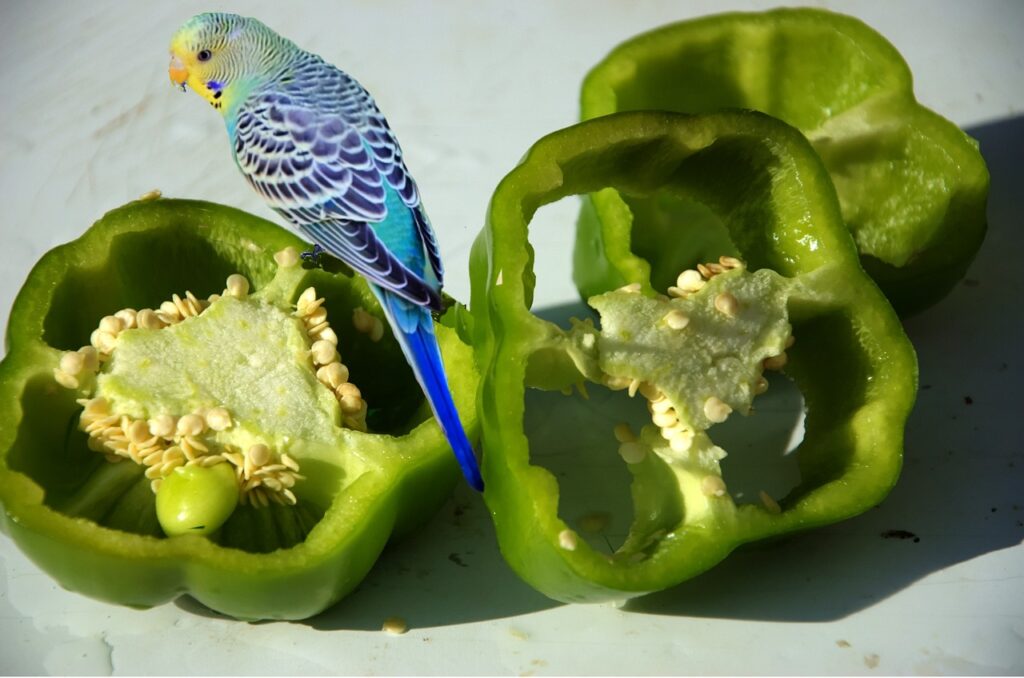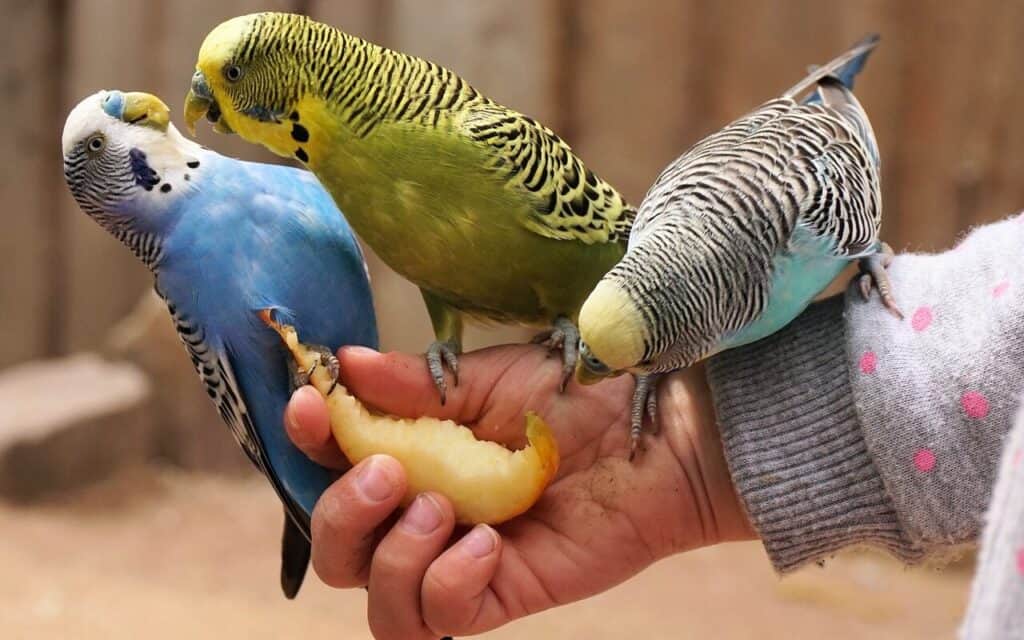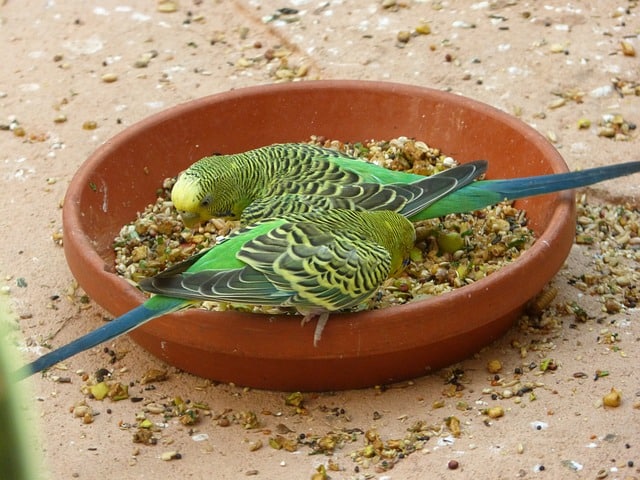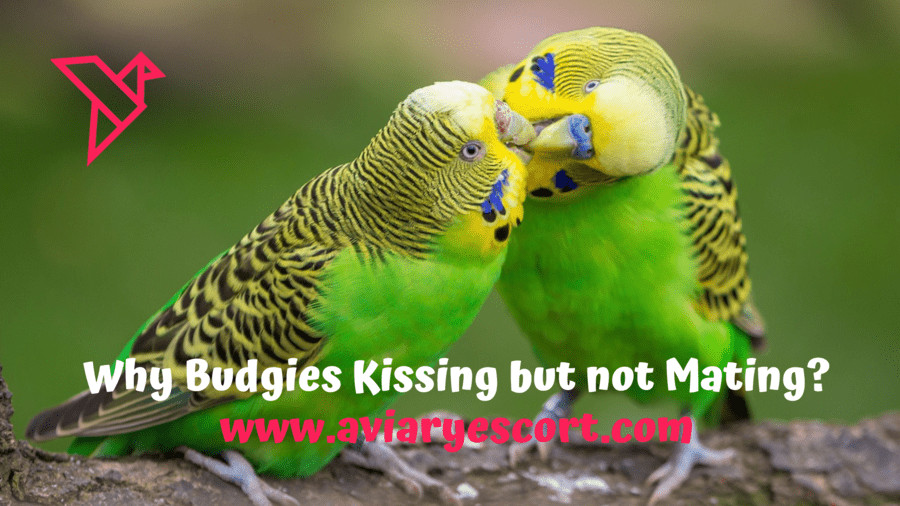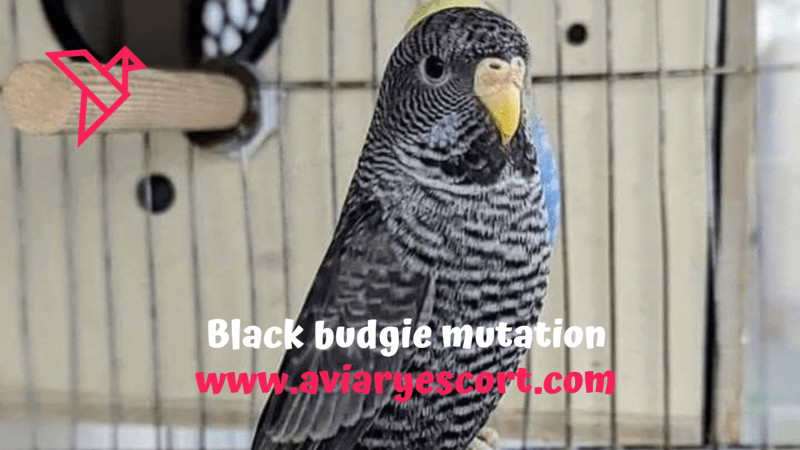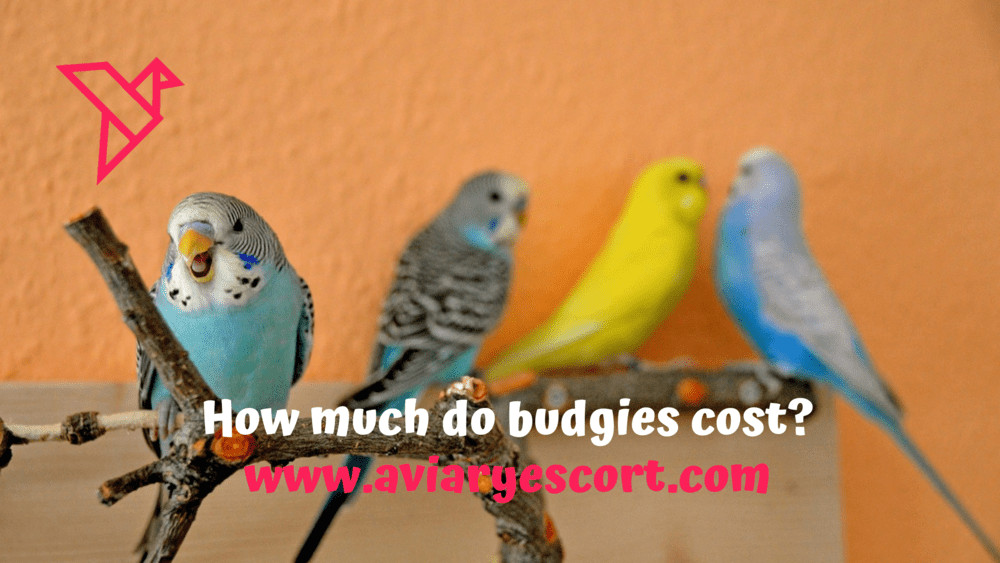Are you a bird lover looking to add a charming and colorful companion to your home? If so, you might be interested in learning about Holland or Dutch budgies. These delightful birds are known for their vibrant plumage and playful personalities. In this complete guide, we will delve into the world of Holland or Dutch budgies, exploring their origins, characteristics, care requirements, and more. So, let’s embark on this journey together and discover everything you need to know about these fascinating avian companions.
What are Holland or Dutch Budgies?
Holland or Dutch budgies, also known as “Hollandse Kleurkanaries” or “Dutch Color Canaries,” are a specific variety of budgerigars, or budgies. Unlike their common green and yellow counterparts, Holland or Dutch budgies boast a wide array of striking colors and patterns. These birds have been selectively bred over generations to achieve their unique and vibrant appearances, making them a popular choice among bird enthusiasts.
Origins
The origins of Holland or Dutch budgies can be traced back to the Netherlands, where dedicated breeders meticulously developed this variety of budgerigars. By carefully selecting and pairing birds with desirable color traits, breeders were able to establish a distinct line of budgies with exceptional hues and patterns. Today, these birds continue to captivate bird lovers around the world with their extraordinary beauty.
Characteristics
Holland or Dutch budgies exhibit a range of captivating characteristics that set them apart from their more common counterparts. Here are some key features:
1. Vibrant Colors
One of the most remarkable aspects of Holland or Dutch budgies is their stunning coloration. They can display an assortment of vivid hues, including blues, violets, whites, yellows, and various shades of green.
2. Unique Patterns
In addition to their striking colors, Holland or Dutch budgies often exhibit intricate patterns. These patterns can manifest as spots, stripes, or other appealing designs, adding to their overall charm.
3. Compact Size
Similar to regular budgies, Holland or Dutch budgies are small in size, typically measuring around 7 inches (18 centimeters) in length. Their compact size makes them suitable for various living spaces, including apartments and houses.
4. Playful Personality
Holland or Dutch budgies are known for their playful and inquisitive nature. They enjoy interacting with their human companions and exploring their surroundings. With proper socialization, they can become affectionate and engaging pets.
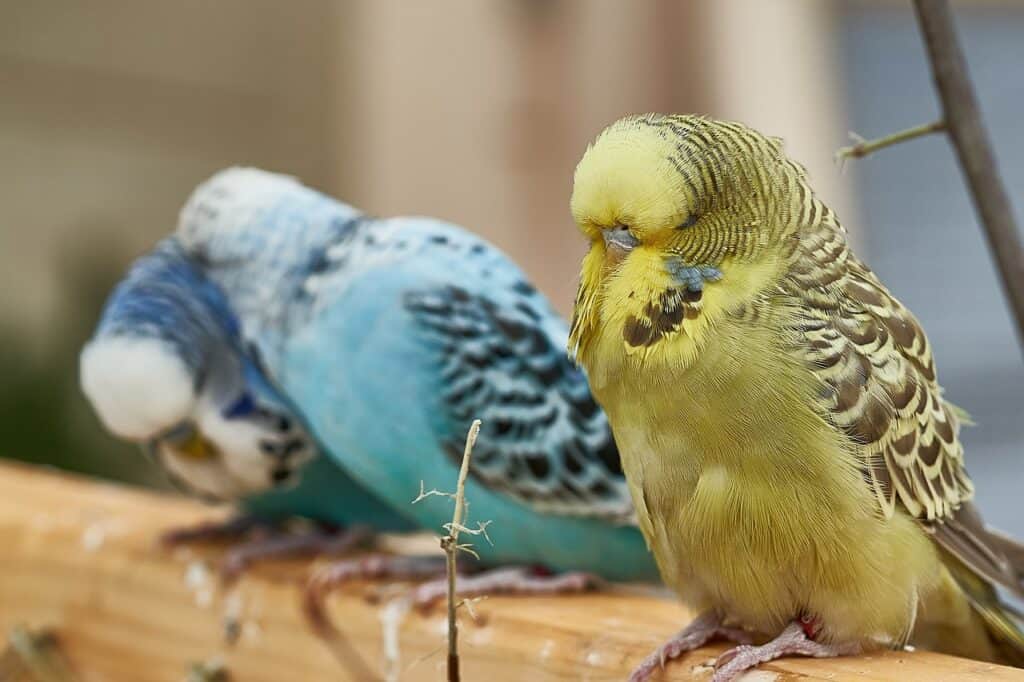
Holland Budgies’ Color Variations
The allure of Holland Budgies lies in their captivating color variations. These birds come in a wide array of shades, including blues, greens, yellows, violets, and even combinations of these colors. Some popular color mutations among Holland Budgies include:
- Cobalt
- Violet
- Opaline
- Lutino
- Albino
- Cinnamon
- Spangle
The diversity of colors available allows bird lovers to choose a Holland Budgie that matches their personal preference and style.
Caring for Holland Budgies
Proper care is crucial to ensure the health and well-being of your Holland Budgie. Here are some essential aspects to consider when providing care for these vibrant birds:
1. Housing and Cage Requirements
Holland Budgies require spacious cages that allow them to move around freely. The cage should be equipped with perches of different sizes and materials to promote foot health. It is important to place the cage away from drafts, direct sunlight, and noisy areas to ensure a comfortable environment for your budgie.
2. Nutrition and Diet
A well-balanced diet is essential for the overall health of your Holland Budgie. Their diet should consist of high-quality budgie seed mix, fresh fruits and vegetables, and occasional treats. It is crucial to provide fresh water daily and ensure the availability of grit and cuttlebone for essential mineral intake.
3. Exercise and Enrichment
Holland Budgies are active birds and require regular exercise to maintain their physical and mental well-being. Providing them with toys, swings, and interactive activities will keep them entertained and stimulated. Regular out-of-cage time in a safe and supervised environment is also recommended.
4. Social Interaction
These sociable birds thrive on social interaction and companionship. Spending time with your Holland Budgie daily, talking to them, and offering gentle physical contact will help build a strong bond and prevent loneliness.
Holland Budgies’ Diet and Nutrition
A well-balanced diet is vital for the health and longevity of your Holland Budgie. These birds require a varied diet that includes:
1. Seeds
Provide a high-quality budgie seed mix as the primary food source. It should contain a combination of millet, canary grass seeds, oats, and other nutritious seeds.
2. Fresh Fruits and Vegetables
Offer a wide variety of fresh fruits and vegetables, such as apples, carrots, spinach, and bell peppers. These provide essential vitamins, minerals, and dietary fiber.
3. Pellets
Consider supplementing your budgie’s diet with high-quality budgie pellets. These pellets are specially formulated to provide balanced nutrition.
4. Treats
Occasional treats like millet sprays or small amounts of plain popcorn can be offered as rewards or for added enrichment.
Remember to remove any uneaten fresh food after a few hours to prevent spoilage and maintain hygiene in the cage.
Breeding Holland Budgies
Breeding Holland Budgies requires careful planning and consideration. Here are some key points to keep in mind:
1. Pair Selection
Choose healthy and unrelated budgies for breeding. Consider their lineage, temperament, and compatibility.
2. Breeding Environment
Provide a suitable nesting box or breeding cage that offers privacy and security. Ensure proper ventilation and cleanliness to maintain optimal conditions.
3. Egg Incubation
Budgies typically lay a clutch of 4-8 eggs. The eggs hatch within 18-21 days. Avoid excessive handling of the eggs and monitor the temperature and humidity levels in the incubation area.
4. Chick Care
Once the chicks hatch, ensure a quiet and warm environment for their growth. Provide a well-balanced diet for both the parents and chicks.
Breeding budgies requires knowledge and experience. It is recommended to consult with experienced breeders or avian experts for guidance and support.
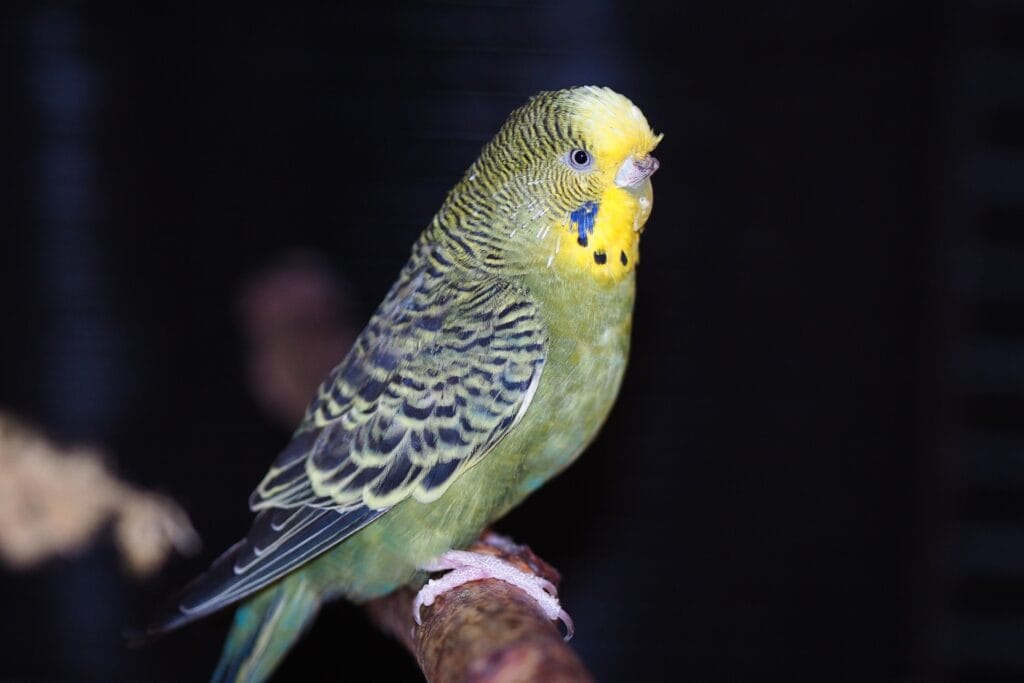
Tips for Choosing a Healthy Holland Budgie
When selecting a Holland Budgie, consider the following tips to ensure you bring home a healthy and thriving companion:
1. Appearance
Look for a budgie with bright, clear eyes, clean feathers, and smooth scales on the legs and feet. Avoid budgies with signs of illness or abnormalities.
2. Activity Level
Observe the budgie’s activity level and behavior. A healthy budgie will be active, alert, and show curiosity.
3. Feeding Habits
Check if the budgie is eating and drinking regularly. A healthy budgie will show interest in food and have a good appetite.
4. Breathing
Listen for any wheezing or labored breathing sounds. Healthy budgies breathe quietly and smoothly.
5. Interaction
If possible, interact with the budgie to assess their temperament. A budgie that is friendly and comfortable with human interaction is more likely to bond well with you.
Remember to purchase your Holland Budgie from a reputable breeder or avian specialist who can provide you with proper documentation and ensure the bird’s health and well-being.
FAQs
Q1: Are Holland Budgies suitable for beginners in aviculture?
A1: Yes, Holland Budgies can be suitable for beginners. They are generally friendly and easy to care for, but it is important to research and understand their specific needs before bringing one home.
Q2: Can Holland Budgies learn to talk?
A2: Yes, Holland Budgies are known for their ability to mimic sounds and learn a few words or phrases. However, not all budgies will develop talking skills.
Q3: How long do Holland Budgies live?
A3: With proper care and nutrition, Holland Budgies can live anywhere from 5 to 10 years or even longer.
Q4: Can I keep a single Holland Budgie or should I have a pair?
A4: While it is possible to keep a single Holland Budgie, they are social birds and thrive with the companionship of other budgies. Consider having a pair or providing regular social interaction and stimulation if keeping a single budgie.
Related post English Budgies | English Budgie vs American Budgie


